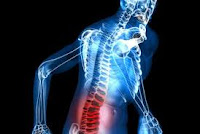AN ARTICLE ON DRUGS/ADDICTION
Different drugs create different problems for different people. These problems need different answers, to begin to understand the problem, you have to know what is happening in the life of the person who is using the drug and what drug they are using.
In this booklet we look at the problem of illegal drug use.
The most commonly used illegal drugs are cannabis, ecstasy, heroin, cocaine, and some contraceptive
There are of course legal drugs which we all come across every day. For example, you may take medicine
When you are sick, alcohol to help you relax or coffee to help you stay awake.
What we are talking about in this article are illegal drugs. You may experiment with illegal drugs because of curiosity, because your friends are doing it or to escape boredom or worries. You may take certain drugs to change how you feel. You may believe it’s a fun or fashionable things we do.
• Depressants, such as alcohol, can be used to calm the mind, relieve anxiety and can cause sleepiness.
•Sedatives and minor tranquillizers include the benzodiazepine drugs, such as valium. These are often prescribed to calm you down or to help you sleep at night. They have the same general effects as depressants but they cause addiction in a different way
• Opiates, also known as narcotic analgesics, are strong painkillers that produce feelings of euphoria (happiness) and sleepiness. The opiates include morphine, heroin and methadone, tramadol.
Drugs have emotional and psychological effects and leads to insaneness
It stimulates crime vigor,
It damages cells, tissue and immunity leading to stroke, hypertension and dead.
All drugs reacts and have sight effects be it(SOFT OR HARD DRUGS)
Why do people use Drugs?
You may continue to use a drug because you enjoy it, or because it’s part of your social life or culture, just like the culture of the a typical akwa ibom man who believes in taking alcohol and bitter cola This is often called ‘recreational’ drug use. Sometimes drug use can become an important part of your life. This may be because of emotional, psychological or social problems you are experiencing. Some drugs can make you addicted or dependent, where you lose control over your drug use and feel you cannot function without the drug. Some people use more than one drug at the same time – this is known as ‘polypro use’. Mixing drugs can be dangerous because the effects and side-effects are added together. This includes mixing illegal drugs with legal drugs such as alcohol or medication. For example, taking alcohol with cocaine increases your risk of irregular heart rhythms, heart attacks and even death, Mixing alcohol with ginger, cola, some organic compounds, and other natural herbs could be reactive and harmful to optimal wellbeing.
HARD/SOFT DRUGS
Drugs are often described as being either ‘hard’ or ‘soft’ but it’s not as simple as that.
Myth “My teenager is moody and losing interest in school – they must be on drugs”
Fact: Parents often ask how they can tell if their child is using drugs. But you should be careful of lists of signs and symptoms.
Many of the possible signs, such as mood swings or loss of interest in hobbies or study, are also normal behavior for teenagers.
It’s better to talk to them before jumping to conclusions.
If you find that your child is taking drugs, don’t panic. Find out the details of their drug taking – what they have taken, for how long and why. Speaking with a trained professional can help you decide what action to take. You can help your child develop a sensible attitude towards drugs, by showing a sensible attitude to your own use of drugs – particularly legal drugs such as alcohol and medication.
Myth “Young people are tempted to try drugs by pushers” mostly children in the secondary and tertiary institutions, so therefore one need to apply serious self discipline on getting to college.
Fact: Most young people are introduced to illegal drugs by a friend or someone they know, gambling group, peer groups, gang up, and various socio-illegal groups. In many cases drugs are ‘pulled’ rather than ‘pushed’ – the person asks for it themselves, often out of curiosity, and to also feel among, just like what is happening in our NATION today, where teenagers and young people irrationally doing things that don’t count, not being ready to take their future in their own hands.
Talking about drugs and drug use can be difficult. You may feel uncomfortable talking about drugs because you don’t know enough about the subject. You may not be confident that you can talk to and influence the other person. You don’t have to do this alone you can get further information and support.
To get information on your local services:
Free phone: Drugs helpline
08103049519, 07037316157
(Monday – Friday, 9am to 5pm)
Web: www.drugs.ie
There is also a support group that can help individual quite drug, help can be rendered psychologically, mentally, physically, financially and otherwise
Courtesy:
FOCT {FORUM OF ORO CREATIVE THINKERS}, DEPARTMENT OF GENETICS AND BIOTECHNOLOGY (GTB) AND MICROBIOLOGY (MCB).
>>AKWA IBOM STATE UNIVERSITY CHAPTER



Comments
Post a Comment